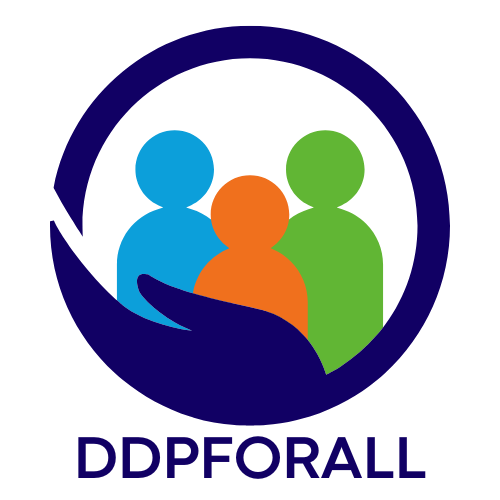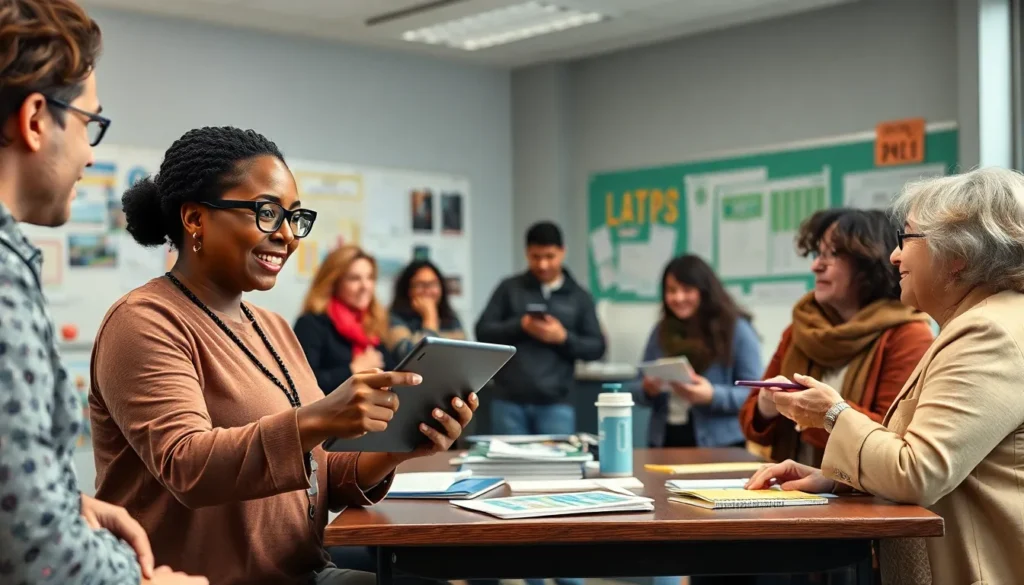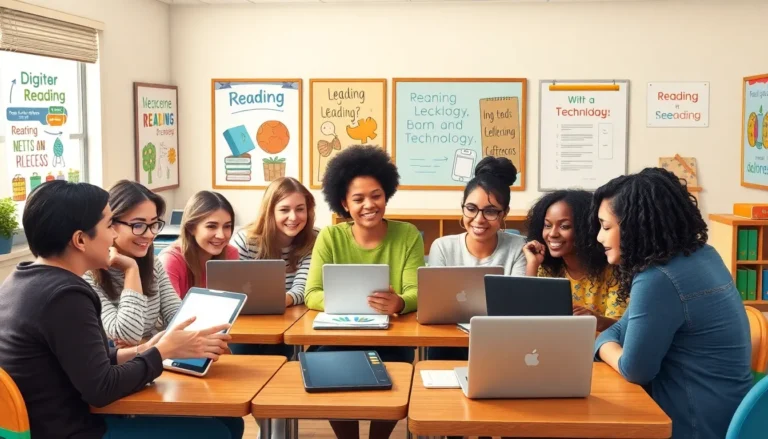Table of Contents
ToggleIn the ever-evolving world of education, the Science of Reading is like the latest blockbuster hit—everyone’s talking about it, and for good reason. As we dive into 2024, teachers and educators face the exciting challenge of leveling up their skills to keep pace with this groundbreaking approach. Forget the dusty textbooks and boring lectures; it’s time to embrace a professional development experience that’s as engaging as it is enlightening.
Imagine unlocking the secrets to effective reading instruction while having a few laughs along the way. This isn’t just another workshop; it’s a chance to transform classrooms into vibrant learning environments where every student can thrive. With the right tools and insights, educators can turn reading struggles into success stories, making 2024 the year they finally conquer the reading game. Who knew professional development could be this much fun?
Overview of Science of Reading Professional Development 2024
The Science of Reading emphasizes evidence-based approaches to literacy. In 2024, professional development focuses on equipping educators with effective strategies to teach reading. Workshops, online courses, and collaborative sessions provide dynamic learning opportunities.
Educators benefit from hands-on experiences that showcase practical applications in the classroom. Research-backed methods shape training sessions that prioritize student engagement. Effective oral language and comprehension strategies form critical components of these sessions.
Participants explore the integration of phonics, vocabulary, and fluency into reading instruction. The aim centers on developing a comprehensive understanding of diverse literacy needs. Networking opportunities encourage educators to share best practices and real-world experiences.
Mentorship programs reinforce learning by connecting novice educators with seasoned professionals. Regular assessments enhance educators’ abilities to track student progress and adapt instruction accordingly. High-quality resources, including digital tools and instructional materials, support continuous growth.
Innovative educators play a pivotal role in transforming literacy instruction nationwide. The potential impact extends to creating more inclusive environments for all learners. As the focus shifts towards collaborative learning, education systems embrace the evolving landscape of reading instruction. Empowering educators through targeted professional development fosters a culture of excellence in literacy teaching.
Key Principles of the Science of Reading

Understanding the key principles of the Science of Reading is essential for effective literacy instruction. Educators equipped with this knowledge can facilitate powerful learning experiences for their students.
Phonemic Awareness
Phonemic awareness forms the foundation of reading skills. It involves recognizing and manipulating individual sounds in spoken words. Developing this skill enhances a student’s ability to decode and spell words. Effective professional development will include activities targeting phonemic awareness through games and interactive lessons. Teachers can integrate exercises into their daily routines, helping students better hear, identify, and create phonemes. By emphasizing this principle, educators can foster stronger literacy skills early in students’ learning journeys.
Phonics Instruction
Phonics instruction connects sounds with letters or groups of letters. This practice supports students in decoding new words and understanding spelling patterns. Training sessions will focus on structured phonics instruction, ensuring educators learn effective methods for teaching phonics systematically. Workshops may include strategies for incorporating phonics into reading lessons through engaging activities. When educators emphasize phonics, students can develop fluency, aiding overall comprehension and fostering a love for reading.
Vocabulary Development
Vocabulary development plays a critical role in reading comprehension. A robust vocabulary allows students to understand and engage with texts more effectively. Professional development will highlight strategies for explicit vocabulary instruction, incorporating diverse word exposure. Educators may learn to use rich texts in lessons, exposing students to new words in meaningful contexts. Through discussions, word games, and writing activities, vocabulary growth becomes an integral part of reading instruction. Emphasizing vocabulary development fosters lifelong learners who can access a wide range of texts confidently.
Importance of Professional Development for Educators
Professional development is crucial for educators aiming to improve literacy instruction. Engaging training sessions equip teachers with innovative techniques aligned with the Science of Reading.
Enhancing Instructional Strategies
Focus on effective instructional strategies transforms classroom experiences. Workshops, online courses, and collaborative sessions provide hands-on applications. Training emphasizes phonemic awareness activities, helping educators strengthen foundational reading skills. Structured phonics instruction connects letters with sounds, enhancing students’ decoding and spelling abilities. Educators acquire practical tools designed to increase student engagement dramatically. Sessions also incorporate vocabulary enhancement techniques promoting reading comprehension.
Meeting Diverse Learner Needs
Addressing diverse learners’ needs defines effective instruction. Professional development emphasizes differentiated strategies that cater to all students. By exploring various literacy approaches, educators learn methods that resonate with struggling readers and advanced learners alike. Networking opportunities foster collaboration where teachers share best practices and experiences. Mentorship programs connect newer educators with seasoned professionals, enhancing skill sets significantly. Regular assessments equip teachers to monitor student progress effectively, adapting instructional methods as necessary.
Innovations in 2024 Professional Development Programs
Innovative approaches will shape professional development in 2024. Educators will benefit from advancements that enhance reading instruction techniques.
Technology Integration
Technology integration will play a critical role in engaging educators. Workshops will feature interactive tools and digital resources that facilitate hands-on learning experiences. Educators will familiarize themselves with apps and platforms designed to support literacy development, such as interactive phonics games and vocabulary-building software. These digital tools will promote personalized learning, allowing educators to tailor instruction to meet diverse student needs. Webinars will focus on using data analytics to track student progress effectively, making instruction more responsive and impactful.
Collaborative Learning Models
Collaborative learning models will emerge as essential components of professional development programs. Educators will participate in peer-led workshops that encourage sharing best practices and classroom experiences. Group activities will promote the exchange of ideas on evidence-based strategies from the Science of Reading. Networking opportunities will foster connections among educators, enhancing their professional growth. Mentorship initiatives will pair novice teachers with experienced professionals, creating environments of support and shared learning. This collaborative approach aims to build stronger literacy educators equipped to implement effective reading instruction.
Case Studies and Success Stories
Education systems implementing the Science of Reading have seen significant improvements in literacy outcomes. One district in California reported a 25% increase in reading proficiency scores after teachers participated in targeted professional development workshops focused on phonemic awareness and structured phonics.
Another example comes from a school in Texas that utilized online courses developed around the Science of Reading principles. They observed accelerated growth in student engagement and comprehension scores, attributing this success to the integration of evidence-based strategies from the training sessions.
In Massachusetts, a collaborative model was adopted where teachers shared best practices through peer-led workshops. This approach fostered a culture of support and innovation, resulting in a 30% rise in student test scores over two academic years.
A notable case in New York showcased the effectiveness of mentoring programs. Novice educators partnered with experienced teachers, leading to improved instructional techniques and enhanced student outcomes. The district noted a 40% increase in literacy achievement among students in classrooms where such mentoring occurred.
Additionally, a school in Florida integrated technology into its literacy instruction following professional development on digital resources. Educators reported that using interactive apps led to higher motivation levels among students, thereby positively impacting their reading skills.
These case studies highlight that tailored professional development not only equips educators with necessary skills but also transforms student learning experiences. Evidence shows that focusing on structured strategies leads to successful literacy programs across diverse educational settings.
As 2024 approaches the landscape of literacy instruction is set to evolve significantly. Educators will have access to dynamic professional development opportunities that prioritize the Science of Reading. By focusing on evidence-based strategies and innovative approaches educators can create engaging learning environments that meet diverse student needs.
The integration of technology and collaborative learning models will further enhance these professional experiences. With mentorship programs and networking opportunities educators will not only refine their skills but also build supportive communities that foster growth.
Ultimately the commitment to effective literacy instruction through targeted professional development will lead to improved student outcomes and a brighter future for reading education.







